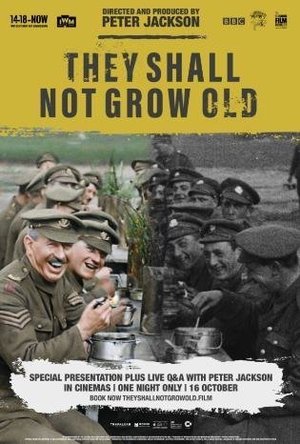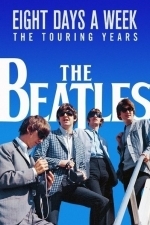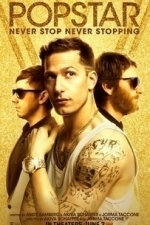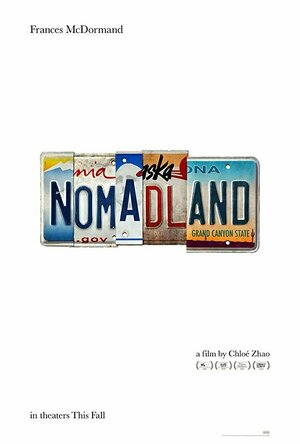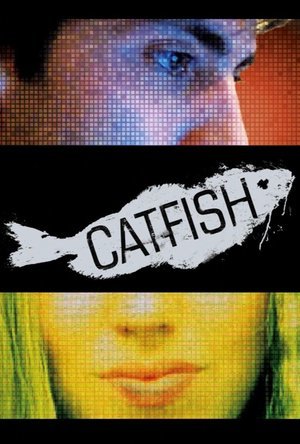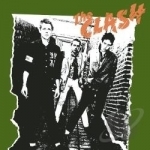Search
Bob Mann (459 KP) rated They Shall Not Grow Old (2018) in Movies
Sep 28, 2021
We DO remember them.
“Trapped in a Charlie Chaplin World”. So says director Peter Jackson in a post-screening discussion with Mark Kermode, describing early black and white documentary footage. Whereas modern film runs at 24 fps, most of the old footage is hand cranked, with speeds as low as 12 fps which leads to its jerky nature. Jackson in this project with the Imperial War Museum took their WW1 footage and put it through a ‘pipeline process. This cleaned-up and restored the original footage; used clever computer interpolation to add in the missing 6 to 12 frames per second; and then colourised it.
The results are outstanding. Jackson wisely focuses the film on the specific slice of WW1 action from the trenches. And those anonymous figures become real, live, breathing humans on screen. It is obviously tragic that some (and as commented by Jackson, many in one scene) are not to be breathing humans for much longer.
These effects take a while to kick in. The early scenes in the documentary are in the original black and white, describing the recruitment process, and how many of the recruits were under-age. (To explain the varied comments in the film, they should have been 18, although officially shouldn’t have been sent overseas until 19).
It is when the troops arrive in France that we suddenly go from black-and-white to the fully restored and colourised footage, and it is a gasp-inducing moment.
Audio magic
All of the audio commentary is from original BBC recordings of war veterans recounting their actual experiences in the trench. Some sound like heroes; some sound like rogues; all came out changed men. Supporting music of WW1 ditties, including the incredibly rude “Mademoiselle from Armentières” over the end credits, is provided by Plan 9.
But equally impressive is the dubbing of the characters onscreen. Jackson employed forensic lip-readers to determine what the soldiers on-screen were saying, and reproduced the speech using appropriate regional accents for the regiments concerned. Jackson also recounts how the words associated with a “pep-talk” speech to troops by an officer he found on an original slip of paper within the regimental records: outstanding. Added sound effects include real-life shelling by the New Zealand army. It all adds to the overall atmosphere of the film.
3D = less
The film itself is a masterpiece of technical innovation that will change in the future the way in which we should be able to see this sort of early film footage forever. As a documentary it’s near-perfection. But if I have a criticism of the cinema showing I attended it is that the 3D tended to detract rather than add to the film. Perhaps this is just my eyesight, but 3D always tends to make images slightly more blurry. Where (like “Gravity”) there are great 3D effects to showcase, it’s worth the slight negative to get the massive positive. But here, there was no such benefit: 2D would have been better. For those in the UK (and possibly through other broadcasters worldwide) the film is being shown on BBC2 tonight (11/11/18) at 9:30: I will be watching it again to compare and contrast.
Final Thoughts
Jackson dedicated the film to his grandfather. And almost all of us Brits will have relatives affected by this “war to end all wars”. In my case, my grandfather was shot and severely wounded at Leuze Wood on the Somme, lying in the mud for four days and four nights before being recovered… by the Germans! Fortunately he was well-treated and, although dying young, recovered enough to father my father – else I wouldn’t be here today writing this. On this Rememberance Sunday, 100 years on, it is a time for us to truly remember the sacrifice these men and boys gave to what, all in the film agree, was a pretty obstinate and pointless conflict.
I’ll finish the review by reproducing one of the war poems of my wife’s Uncle Ivor (available in a collection here), written on 11/11/18 a hundred years ago:
Peace
At last O Lord the Day has come,
And hushed is now the noise of guns.
Peace is proclaimed over land and sea,
Our heartfelt thanks we give to Thee.
I thank thee Father for Thy care,
That thou hasn’t answered all my prayers.
This day I see in manhood’s strength,
The Peace we longed for, come at length.
O may my future actions be,
Worthy of all Thy care to me.
Let me forget not Thy Great Love,
Remembering chums who live Above.
I.G.H. 11/11/1918, France.
The results are outstanding. Jackson wisely focuses the film on the specific slice of WW1 action from the trenches. And those anonymous figures become real, live, breathing humans on screen. It is obviously tragic that some (and as commented by Jackson, many in one scene) are not to be breathing humans for much longer.
These effects take a while to kick in. The early scenes in the documentary are in the original black and white, describing the recruitment process, and how many of the recruits were under-age. (To explain the varied comments in the film, they should have been 18, although officially shouldn’t have been sent overseas until 19).
It is when the troops arrive in France that we suddenly go from black-and-white to the fully restored and colourised footage, and it is a gasp-inducing moment.
Audio magic
All of the audio commentary is from original BBC recordings of war veterans recounting their actual experiences in the trench. Some sound like heroes; some sound like rogues; all came out changed men. Supporting music of WW1 ditties, including the incredibly rude “Mademoiselle from Armentières” over the end credits, is provided by Plan 9.
But equally impressive is the dubbing of the characters onscreen. Jackson employed forensic lip-readers to determine what the soldiers on-screen were saying, and reproduced the speech using appropriate regional accents for the regiments concerned. Jackson also recounts how the words associated with a “pep-talk” speech to troops by an officer he found on an original slip of paper within the regimental records: outstanding. Added sound effects include real-life shelling by the New Zealand army. It all adds to the overall atmosphere of the film.
3D = less
The film itself is a masterpiece of technical innovation that will change in the future the way in which we should be able to see this sort of early film footage forever. As a documentary it’s near-perfection. But if I have a criticism of the cinema showing I attended it is that the 3D tended to detract rather than add to the film. Perhaps this is just my eyesight, but 3D always tends to make images slightly more blurry. Where (like “Gravity”) there are great 3D effects to showcase, it’s worth the slight negative to get the massive positive. But here, there was no such benefit: 2D would have been better. For those in the UK (and possibly through other broadcasters worldwide) the film is being shown on BBC2 tonight (11/11/18) at 9:30: I will be watching it again to compare and contrast.
Final Thoughts
Jackson dedicated the film to his grandfather. And almost all of us Brits will have relatives affected by this “war to end all wars”. In my case, my grandfather was shot and severely wounded at Leuze Wood on the Somme, lying in the mud for four days and four nights before being recovered… by the Germans! Fortunately he was well-treated and, although dying young, recovered enough to father my father – else I wouldn’t be here today writing this. On this Rememberance Sunday, 100 years on, it is a time for us to truly remember the sacrifice these men and boys gave to what, all in the film agree, was a pretty obstinate and pointless conflict.
I’ll finish the review by reproducing one of the war poems of my wife’s Uncle Ivor (available in a collection here), written on 11/11/18 a hundred years ago:
Peace
At last O Lord the Day has come,
And hushed is now the noise of guns.
Peace is proclaimed over land and sea,
Our heartfelt thanks we give to Thee.
I thank thee Father for Thy care,
That thou hasn’t answered all my prayers.
This day I see in manhood’s strength,
The Peace we longed for, come at length.
O may my future actions be,
Worthy of all Thy care to me.
Let me forget not Thy Great Love,
Remembering chums who live Above.
I.G.H. 11/11/1918, France.
Daniel Boyd (1066 KP) rated The Beatles: Eight Days A Week - The Touring Years (2016) in Movies
Oct 24, 2017
Four Lads Who Shook The World
Last night the Ron Howard directed Beatles documentary, Eight Days A Week: The Touring Years, premiered in London. As much as I would have loved to attend the premier, I have just started a new year at university and couldn’t afford to go both financially and educationally. Therefore I had to settle for going to see it in my local cinema, but it was still an awesome experience. From six o’clock, the cinema streamed the premier in London, hosted by John Bishop and Edith Bowman and featuring interviews from Ron Howard, Paul and Ringo. Then the cinema auctioned off a poster for the film for charity, (which went for £100 if you are curious,) then finally the film started.
It is a fantastic insight into what went on during the years of Beatlemania while the Beatles were on tour and what they were like as people in those more innocent days. The music is of course fantastic, but even for someone who isn’t a massive Beatles fan I think that this documentary is still relevant and tells of an important piece of recent history in an exciting, stylish way.
There are some gripes I have with the movie though, the first one being a case of some revisionist history. The only talk about the group taking any form of drugs was a blink and you’ll miss it mention of them smoking dope on the set of Help, there was no mention of them smoking a joint in the toilets in Buckingham Palace while waiting to receive their MBE’s, there was also no mention of the fact that John returned his MBE and they didn’t even mention the amount of acid they took whilst in India and in the later days. Also, all of John’s more offensive behaviour has been vastly censored and toned down. There is footage of the Beatles first American concert at the Coliseum in Washington D.C, where Paul introduces the band and asks the audience to ‘clap their hands and stomp their feet,’ as Paul is saying this John appears to be impersonating a handicapped person doing exaggerated clapping and stomping movements, which is something he did repeatedly during their first American tour, but in the film they cut away to the audience during this to avoid showing John being offensive. We also never see the footage from their Royal Variety performance, when John told the people in the poor seats to clap their hands and the rich people, including the Royal family, to just rattle their jewellery. I don’t know why they are trying to make John look like an innocent saint when he was never like that, he was always rebellious and cheeky and was never afraid to say what was on his mind. The second gripe I have is more of a personal one in that us hardcore Beatles fans were promised a story that had never been told and while there was some footage that I hadn’t seen before, I wasn’t exactly mind blown by the story that the footage told as there was very little in the film that I didn’t already know about. However despite these minor gripes the movie is fantastic, an immense story told by a master filmmaker about the greatest band in history, what’s not to love?
It is a fantastic insight into what went on during the years of Beatlemania while the Beatles were on tour and what they were like as people in those more innocent days. The music is of course fantastic, but even for someone who isn’t a massive Beatles fan I think that this documentary is still relevant and tells of an important piece of recent history in an exciting, stylish way.
There are some gripes I have with the movie though, the first one being a case of some revisionist history. The only talk about the group taking any form of drugs was a blink and you’ll miss it mention of them smoking dope on the set of Help, there was no mention of them smoking a joint in the toilets in Buckingham Palace while waiting to receive their MBE’s, there was also no mention of the fact that John returned his MBE and they didn’t even mention the amount of acid they took whilst in India and in the later days. Also, all of John’s more offensive behaviour has been vastly censored and toned down. There is footage of the Beatles first American concert at the Coliseum in Washington D.C, where Paul introduces the band and asks the audience to ‘clap their hands and stomp their feet,’ as Paul is saying this John appears to be impersonating a handicapped person doing exaggerated clapping and stomping movements, which is something he did repeatedly during their first American tour, but in the film they cut away to the audience during this to avoid showing John being offensive. We also never see the footage from their Royal Variety performance, when John told the people in the poor seats to clap their hands and the rich people, including the Royal family, to just rattle their jewellery. I don’t know why they are trying to make John look like an innocent saint when he was never like that, he was always rebellious and cheeky and was never afraid to say what was on his mind. The second gripe I have is more of a personal one in that us hardcore Beatles fans were promised a story that had never been told and while there was some footage that I hadn’t seen before, I wasn’t exactly mind blown by the story that the footage told as there was very little in the film that I didn’t already know about. However despite these minor gripes the movie is fantastic, an immense story told by a master filmmaker about the greatest band in history, what’s not to love?
Gareth von Kallenbach (980 KP) rated Popstar Never Stop Never Stopping (2016) in Movies
Aug 6, 2019
If you go into this movie expecting anything other than crude comedy, you should not go see this movie. But this is not a bad thing. If you are at all familiar with, and like, the music of The Lonely Island, you will absolutely enjoy Popstar: Never Stop Never Stopping. Which is pretty much The Lonely Island’s take on a Scary Movie, only focused solely on Justin Bieber’s Never Say Never.
Popstar is filmed in documentary style following Conner (Andy Samberg) , aka Conner4Real, as he is getting to release his second solo album after splitting from an influential hip-hop group, Style Boyz. Conner is the complete exaggeration of the real life Bieber, and the film follows his antics as he prepares for the big day and beyond.
In addition to Jorma Taccone and Akiva Shafer, the rest of The Lonely Island, there is a slew of familiar faces and cameos, including, but not limited to, Imogen Poots; Bill Hader; Maya Rudolph; Sarah Silverman; Tim Meadows; Pink; Usher; Nas; Joan Cusack; Adam Levine; and Will Arnett. There are so many more, also, but I would be remiss to give them away.
Ultimately it comes down to this: as I said before, if you are fan of The Lonely Island, you will enjoy this film. I honestly kind of walked out of the theater thinking that the film basically serves as a vehicle for a new Lonely Island album as there all the songs performed in the movie are original and new. But, again, that’s not a bad thing. It, at times, goes a little overboard, but it quickly reels you back in the next moment. I suppose you could say there is humor for all tastes. Well… most tastes anyway.
It’s not going to win any awards. Let’s just get that on the table, but it is a film that will have you laughing most of the way through. There was definitely big audience reaction during my screening of the film. I will most definitely be picking up the soundtrack and the film upon home release.
Popstar is filmed in documentary style following Conner (Andy Samberg) , aka Conner4Real, as he is getting to release his second solo album after splitting from an influential hip-hop group, Style Boyz. Conner is the complete exaggeration of the real life Bieber, and the film follows his antics as he prepares for the big day and beyond.
In addition to Jorma Taccone and Akiva Shafer, the rest of The Lonely Island, there is a slew of familiar faces and cameos, including, but not limited to, Imogen Poots; Bill Hader; Maya Rudolph; Sarah Silverman; Tim Meadows; Pink; Usher; Nas; Joan Cusack; Adam Levine; and Will Arnett. There are so many more, also, but I would be remiss to give them away.
Ultimately it comes down to this: as I said before, if you are fan of The Lonely Island, you will enjoy this film. I honestly kind of walked out of the theater thinking that the film basically serves as a vehicle for a new Lonely Island album as there all the songs performed in the movie are original and new. But, again, that’s not a bad thing. It, at times, goes a little overboard, but it quickly reels you back in the next moment. I suppose you could say there is humor for all tastes. Well… most tastes anyway.
It’s not going to win any awards. Let’s just get that on the table, but it is a film that will have you laughing most of the way through. There was definitely big audience reaction during my screening of the film. I will most definitely be picking up the soundtrack and the film upon home release.
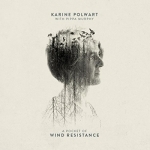
A Pocket of Wind Resistance by Karine Polwart
Album Watch
The first studio album from the acclaimed Karine Polwart in over 5 years. A Pocket Of Wind...
pop folk
Bob Mann (459 KP) rated The Beatles: Eight Days A Week - The Touring Years (2016) in Movies
Sep 29, 2021
A film worth getting into your life.
Reviewing documentaries is always a bit tricky, since it is often difficult to separate the quality of the film making from your emotional attachment to the subject material. In my case, my early life was saturated with Beatlemania. Although I was only 2 year’s old in 1963 at the start of it all, I had three older siblings who ramped up the excitement so much that it permeated my young mind. I still remember being vehemently “Sssshhed” since I was making too much noise during the live and ground-breaking “All you need is Love” telecast!
Ron Howard’s film focuses on “the touring years” which as depicted were truly manic, spanning from 1963 to 1966 before then skipping forward to 1969 for their final rooftop concert. This was in a time when airline travel was not the more comfortable and smoke-free environment it is today, so these worldwide trips much have been seriously grueling, even without the adoration that reached dangerous proportions when they reached their destinations.
Howard has clearly had his research team scour the world for archive clips since – whilst sensitively skipping some of the more ‘commonly seen’ materials, like the “jewelry shaking” clip – the film shows concert action I certainly had never seen before.
The film is also nicely interlaced with celebrity cameos recalling their linkage to the Fab Four’s performances (often moving, like Whoopi Goldberg’s) and the group’s “legacy” effect on modern-day art (in Richard Curtis’s case rather less convincing). One of the most striking of these is that of Sigourney Weaver recounting her attendance as a pre-teen at the Beatle’s Rose Bowl performance in LA. There, in the newsreel footage of adoring fans, is the unmistakable face of the ‘before she was famous’ actress: at least I hope it really was her (as the clip’s timing implied) and not a lookalike, since that would be really disappointing!
Also featuring – although not enough for my liking – are Paul McCartney and Ringo Starr, recounting their feelings about the events and what happened behind the closed doors of hotel rooms or – most notably – a meat truck.
What shines through is the honesty and intelligence of Lennon and McCartney, typified by the idiotic questioning of journalists, some of who had done so little homework they didn’t even know there wasn’t a Beatle called Eric! Some of the group’s off the cuff responses were priceless: “What is the secret of your success?” asks one journo. “We don’t know” quips John. “If we knew we’d form another group and be managers.”
While the film has enormous energy in its first two thirds, it rather runs out of momentum in its final reel…. a bit like the Beatles did in fact. It also has elements of gimmickry like the smoke rising from photo cigarettes which gets a tad tiresome after the tenth occurrence.
But this is a very watchable and enjoyable rock down memory lane for 50-somethings and for any fans old and young of the Fab Four’s music. Highly Recommended. Note that the documentary itself is about 90 minutes in length, with another 30 minutes of live concert music tagged onto the end post-titles (which for travel reasons I was unfortunately unable to stay for so can’t comment on).
Ron Howard’s film focuses on “the touring years” which as depicted were truly manic, spanning from 1963 to 1966 before then skipping forward to 1969 for their final rooftop concert. This was in a time when airline travel was not the more comfortable and smoke-free environment it is today, so these worldwide trips much have been seriously grueling, even without the adoration that reached dangerous proportions when they reached their destinations.
Howard has clearly had his research team scour the world for archive clips since – whilst sensitively skipping some of the more ‘commonly seen’ materials, like the “jewelry shaking” clip – the film shows concert action I certainly had never seen before.
The film is also nicely interlaced with celebrity cameos recalling their linkage to the Fab Four’s performances (often moving, like Whoopi Goldberg’s) and the group’s “legacy” effect on modern-day art (in Richard Curtis’s case rather less convincing). One of the most striking of these is that of Sigourney Weaver recounting her attendance as a pre-teen at the Beatle’s Rose Bowl performance in LA. There, in the newsreel footage of adoring fans, is the unmistakable face of the ‘before she was famous’ actress: at least I hope it really was her (as the clip’s timing implied) and not a lookalike, since that would be really disappointing!
Also featuring – although not enough for my liking – are Paul McCartney and Ringo Starr, recounting their feelings about the events and what happened behind the closed doors of hotel rooms or – most notably – a meat truck.
What shines through is the honesty and intelligence of Lennon and McCartney, typified by the idiotic questioning of journalists, some of who had done so little homework they didn’t even know there wasn’t a Beatle called Eric! Some of the group’s off the cuff responses were priceless: “What is the secret of your success?” asks one journo. “We don’t know” quips John. “If we knew we’d form another group and be managers.”
While the film has enormous energy in its first two thirds, it rather runs out of momentum in its final reel…. a bit like the Beatles did in fact. It also has elements of gimmickry like the smoke rising from photo cigarettes which gets a tad tiresome after the tenth occurrence.
But this is a very watchable and enjoyable rock down memory lane for 50-somethings and for any fans old and young of the Fab Four’s music. Highly Recommended. Note that the documentary itself is about 90 minutes in length, with another 30 minutes of live concert music tagged onto the end post-titles (which for travel reasons I was unfortunately unable to stay for so can’t comment on).
Bob Mann (459 KP) rated Nomadland (2020) in Movies
May 5, 2021
Frances McDormand - outstanding acting (2 more)
Cinematography
A novel slice of American alternative lifestyle
Don't exit with your sail-boat still in the driveway
"Nomadland" sees a widowed and depressed Fern (Frances McDormand) take what she needs from her lockup garage and head out on the road in her beat-up converted camper-van. Taking work wherever she can get it, she joins and befriends a similar set of 'nomads', all equally battered by life in different ways.
Positives:
- Undeniably a superior motion picture, full of memorable imagery and with an incredible central performance from the impeccably dour Frances McDormand. Few actors can 'listen' and react as well as she can.
- A key part of this is the superb cinematography from (Brit-born) Joshua James Richards. This is a movie which I MUST revisit on the big-screen when the cinemas reopen in the UK in 2 week's time. I thought "Mank" was terrific (rather against the grain of many other movie fans) largely because of Erik Messerschmitt's glorious black-and-white cinematography. But I suspect Mr Richards (interestingly, Chloé Zhao's partner) was mightily hacked-off for missing out on the golden prize, as well he might be.
- It's difficult to rate the script on this one, primarily because it's difficult to know sometimes where the scripted bits end and the 'ad lib' parts begin. The majority of the cast are real nomads, recounting - presumably - their genuine life experiences. (The only exceptions, I believe, are Frances McDormand, David Strathairn and his son Tay Strathairn. The two Strathairn's last appeared on screen together in 1988's "Eight Men Out" when Tay was just eight years old!). As such, the film is an interesting blend of fiction and documentary.
- The movie skewers both capitalism and materialism nicely. As someone who has recently got off the corporate rat-race by retiring, the tale of the man who died before he could use the retirement sail-boat parked in his driveway resonated strongly (and made me very pleased with my decision!). We all get so wrapped up with running around the maze trying to find the cheese that it's often difficult to appreciate that 'getting off and cutting back' is a stress-free and acceptable option. (Not that I'm particularly cutting back, a la Fern..... start saving the retirement coppers early kids!!)
- The movie is also an effective study of grief and the different ways in which people come to terms with it. (Although that does make the overall film feel like a bit of a downer).
- Beautiful classical accompanying music by the great Ludovico Einaudi.
Negatives:
- I really loved this movie for its first hour. But then, for me, the story didn't really maintain my full interest. It was all a bit grey and bland. Did Fern really have much of a story-arc here? She started off at point A and ended up at point B where AB is a short distance! True that perhaps she has a little more acceptance and contentment with her position. But I was looking for more. If this had been a 90 minute film rather than a 107 minute movie, it would have (imho) worked better.
Summary Thoughts on "Nomadland": When a movie gets so much awards-hype thrown at it, I often fear watching it in case I absolutely hate it! That's not really possible with Nomadland, since it is just so well made that you can't help but appreciate what Chloé Zhao and her team have done here. It successfully challenges your misconceptions of what a "normal life" can be. The life might not be for you, or me, but it is an option.
That being said, this is not a movie that will be on my "must re-watch repeatedly" list (although I definitely DO want to see it on the big screen). It sits on that 'worthy-but-dull' list, alongside "Lincoln" and "Moonlight": Movies that I can fully appreciate for their artistry but not for their entertainment value.
As a movie that explores an unexplored social strata in America, and does it in a novel semi-documentary manner, I can understand and accept why it was voted as the Best Film by the Academy. But 'entertainment' ranks highly on my list of criteria. So - for my personal Oscar Best Film choice - I would still go with "Promising Young Woman" every time.
(For the full graphical review, please check out the One Mann's Movies review here - https://bob-the-movie-man.com/2021/05/05/nomadland-dont-exit-with-your-sailboat-still-in-your-driveway/ . Thanks.)
Positives:
- Undeniably a superior motion picture, full of memorable imagery and with an incredible central performance from the impeccably dour Frances McDormand. Few actors can 'listen' and react as well as she can.
- A key part of this is the superb cinematography from (Brit-born) Joshua James Richards. This is a movie which I MUST revisit on the big-screen when the cinemas reopen in the UK in 2 week's time. I thought "Mank" was terrific (rather against the grain of many other movie fans) largely because of Erik Messerschmitt's glorious black-and-white cinematography. But I suspect Mr Richards (interestingly, Chloé Zhao's partner) was mightily hacked-off for missing out on the golden prize, as well he might be.
- It's difficult to rate the script on this one, primarily because it's difficult to know sometimes where the scripted bits end and the 'ad lib' parts begin. The majority of the cast are real nomads, recounting - presumably - their genuine life experiences. (The only exceptions, I believe, are Frances McDormand, David Strathairn and his son Tay Strathairn. The two Strathairn's last appeared on screen together in 1988's "Eight Men Out" when Tay was just eight years old!). As such, the film is an interesting blend of fiction and documentary.
- The movie skewers both capitalism and materialism nicely. As someone who has recently got off the corporate rat-race by retiring, the tale of the man who died before he could use the retirement sail-boat parked in his driveway resonated strongly (and made me very pleased with my decision!). We all get so wrapped up with running around the maze trying to find the cheese that it's often difficult to appreciate that 'getting off and cutting back' is a stress-free and acceptable option. (Not that I'm particularly cutting back, a la Fern..... start saving the retirement coppers early kids!!)
- The movie is also an effective study of grief and the different ways in which people come to terms with it. (Although that does make the overall film feel like a bit of a downer).
- Beautiful classical accompanying music by the great Ludovico Einaudi.
Negatives:
- I really loved this movie for its first hour. But then, for me, the story didn't really maintain my full interest. It was all a bit grey and bland. Did Fern really have much of a story-arc here? She started off at point A and ended up at point B where AB is a short distance! True that perhaps she has a little more acceptance and contentment with her position. But I was looking for more. If this had been a 90 minute film rather than a 107 minute movie, it would have (imho) worked better.
Summary Thoughts on "Nomadland": When a movie gets so much awards-hype thrown at it, I often fear watching it in case I absolutely hate it! That's not really possible with Nomadland, since it is just so well made that you can't help but appreciate what Chloé Zhao and her team have done here. It successfully challenges your misconceptions of what a "normal life" can be. The life might not be for you, or me, but it is an option.
That being said, this is not a movie that will be on my "must re-watch repeatedly" list (although I definitely DO want to see it on the big screen). It sits on that 'worthy-but-dull' list, alongside "Lincoln" and "Moonlight": Movies that I can fully appreciate for their artistry but not for their entertainment value.
As a movie that explores an unexplored social strata in America, and does it in a novel semi-documentary manner, I can understand and accept why it was voted as the Best Film by the Academy. But 'entertainment' ranks highly on my list of criteria. So - for my personal Oscar Best Film choice - I would still go with "Promising Young Woman" every time.
(For the full graphical review, please check out the One Mann's Movies review here - https://bob-the-movie-man.com/2021/05/05/nomadland-dont-exit-with-your-sailboat-still-in-your-driveway/ . Thanks.)

Filmbox Live
Entertainment and Lifestyle
App
Enjoy hundreds of movies and entertainment channels in Filmbox Live with a single subscription!...
Chris Sawin (602 KP) rated Catfish (2010) in Movies
Jun 22, 2019 (Updated Jun 23, 2019)
Nev Schulman is a photographer of dance that catches the eye of an 8 year old girl named Abby when one of his pictures is published nationally. She sends Nev a painting of his published picture, which begins a rather incredible friendship. Nev eventually gets the chance to talk to Abby's mom, Angela, and her older sister, Megan. Megan and Nev really start to hit it off and a relationship begins to form. That is until many of the things Megan has been telling Nev begin drifting further and further from the truth. Nev decides to fly to Michigan and get the answers he so desperately desires.
If somebody made me choose a favorite film genre, psychological thriller would quite possibly be my answer. Films that include incredible twist endings (Oldboy) or have elaborate storylines that make you think (Inception) are definitely some of the best times to be had when it comes to an entertaining movie experience. Catfish was marketed as a film that was not only a thriller, but also contained "a shattering conclusion" that was compared to Alfred Hitchcock. In the end, it didn't really have either of those things.
Catfish had this vibe the entire film like it was leading towards something dark near its conclusion. As Nev makes his way to Michigan, you get more and more anxious as he nears his destination. Even the music gets really unsettling. Is Megan's family going to be a bunch of chainsaw wielding cannibals or have Angela and Vince been keeping a kidnapped girl named Megan chained in their basement for weeks to lead young, single guys out there for them to torture as some sort of twisted way to get off? No, it's nothing like that. Catfish never really became thrilling or even came near diving into dark territory.
What Catfish winds up being is an interesting character study presented as a documentary. The film's heart resides in who Megan really is and how the entire experience affects Nev. Once the pieces of the puzzle are put together and everything falls into place, Catfish turns out to be a very raw, emotional, and heartfelt film. What's intriguing is the film revolves around Facebook and with The Social Network hitting theaters in about two weeks, it seems like a bit of a bold move.
What is arguably the best scene in the film is when it's actually explained why Catfish was chosen as the title in the final minutes. It is a pretty incredible explanation and fits the film perfectly.
Catfish isn't necessarily a bad film, in fact, it's pretty powerful once it really gets going. It probably isn't what you're expecting though. While Catfish is laugh out loud at certain points in the film, at its core, it's a documented love story that mostly resides on the internet. Maybe it just comes from personal experience, the way the film was presented, or the on-screen presence of the characters in the film, but Catfish felt genuine which isn't something that can be said about many films that have come out in 2010.
If somebody made me choose a favorite film genre, psychological thriller would quite possibly be my answer. Films that include incredible twist endings (Oldboy) or have elaborate storylines that make you think (Inception) are definitely some of the best times to be had when it comes to an entertaining movie experience. Catfish was marketed as a film that was not only a thriller, but also contained "a shattering conclusion" that was compared to Alfred Hitchcock. In the end, it didn't really have either of those things.
Catfish had this vibe the entire film like it was leading towards something dark near its conclusion. As Nev makes his way to Michigan, you get more and more anxious as he nears his destination. Even the music gets really unsettling. Is Megan's family going to be a bunch of chainsaw wielding cannibals or have Angela and Vince been keeping a kidnapped girl named Megan chained in their basement for weeks to lead young, single guys out there for them to torture as some sort of twisted way to get off? No, it's nothing like that. Catfish never really became thrilling or even came near diving into dark territory.
What Catfish winds up being is an interesting character study presented as a documentary. The film's heart resides in who Megan really is and how the entire experience affects Nev. Once the pieces of the puzzle are put together and everything falls into place, Catfish turns out to be a very raw, emotional, and heartfelt film. What's intriguing is the film revolves around Facebook and with The Social Network hitting theaters in about two weeks, it seems like a bit of a bold move.
What is arguably the best scene in the film is when it's actually explained why Catfish was chosen as the title in the final minutes. It is a pretty incredible explanation and fits the film perfectly.
Catfish isn't necessarily a bad film, in fact, it's pretty powerful once it really gets going. It probably isn't what you're expecting though. While Catfish is laugh out loud at certain points in the film, at its core, it's a documented love story that mostly resides on the internet. Maybe it just comes from personal experience, the way the film was presented, or the on-screen presence of the characters in the film, but Catfish felt genuine which isn't something that can be said about many films that have come out in 2010.

